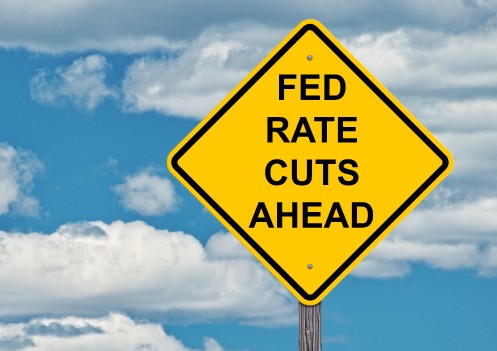After two years of sharply rising from 0% to more than 5%, the Federal Reserve has now begun to reduce its powerful Federal Funds rate. In mid-September, it lowered its target rate by half a percentage point to a range of 4.75% to 5%.
This is an interest rate that sets the tone for lots of other types of interest rates, including the interest rate you’re charged on unpaid credit card balances, adjustable-rate home equity lines of credit (HELOC), and can impact car loan rates. Technically changes in the Federal Funds rate don’t directly impact mortgage rates—the 10-year Treasury note rate is what to watch for mortgage rates—but when the Federal Reserve chooses to reduce the Fed Funds rate it can often signal a general slowing in economic growth, which in turn can lead to lower mortgage rates.
The takeaway is that we’ve now switched to a new cycle for interest rates. As long as inflation doesn’t rear up again, it is likely that the Federal Reserve will keep reducing the Fed Funds rate in 2025. How much depends on what is going on in the economy, but the current thinking is that it might dip into the range of 4% or so in the coming year.
Please listen up: Just because the cost of borrowing is likely to fall, that does not mean you should start borrowing. I want you to be on alert for how your mind may play games with you: You see that the interest rate for a car loan is now lower, so you tell yourself it’s a good time to buy a car.
No, no, no! The question you should always ask with any decision that involves borrowing is whether you are purchasing a need or a want. If it is a need, then a lower interest rate helps. But please don’t use lower interest rates as an excuse or rationale for borrowing for a want.
I also want to make sure that those of you who have credit card debt remain focused on getting it paid down/paid off ASAP. The fact that the Federal Funds rate is now coming down should cause the interest rate charged on unpaid balances to ease a bit. But it’s likely to merely fall from crazy high to just a little less crazy.
The current interest rate on credit card balances is nearly 23%. Even if it falls a few percentage points in 2025, it’s still a painful rate to be charged. And keep in mind, the last time the Federal Funds rate was zero (in early 2022) the average rate charged on credit card balances was still above 15%. And there’s currently no economic reason to suggest the Fed will take its Federal Funds rate back down to anywhere near zero.
For my advice on how to tackle credit card debt, please read this.
Top Resources for You

The Ultimate Retirement
Guide for 50+
Learn More

MUST HAVE® Documents
Online Program
Learn More







